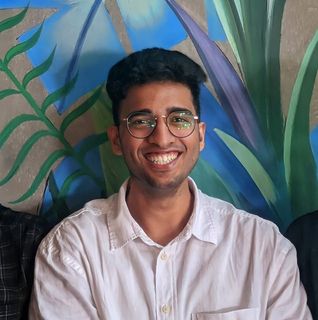Exchange Diaries

Hariharan Ravichandran | Aerospace Engineering
Carnegie Mellon University, United States of America
1. While you were in college, what was your motivation to go for higher studies and in
which year did you get that motivation? How did you manage your academics with your
preparation?
- Till 3rd year, I was more keen on software. My 3rd year internship was in robotics.
I got more interested in robotics. It was then I wanted to do a Masters in robotics.
2. How did you manage your academics with your preparation?
- It wasn’t much of a hassle because in 3rd year my project was good and two
more projects in 4th year. Academics wasn’t a problem for me.
3. What is the process of interdisciplinary studies? How easy was the switch? What
motivated you to switch?
- It’s easier than what people think about it. ‘Controls’ is one of the keys in Robotics
which is also in Aerospace. If you’re interested in controls, then anyone can go
into Robotics. It wasn’t much of a transition actually.
4. What are the factors that you considered for selecting the universities you are going to
apply for?
- In general, students apply for 8-10 universities.
- I applied for 2 backup universities and 2 moderate universities. The remaining 5
are ambitious universities.
- Curriculum, professors, location and the fee structure are the main factors that
are considered generally.
- The internship in robotics that I did in my 3rd year motivated me to do a Masters
in Robotics.
5. Can you please elaborate on the differences in the selection process of the universities?
What could you have done better?
- All the universities have a similar selection process. They ask for a CV and SOP.
The only difference is the length of SOP. Some have a 1000 word limit and some
have 2500 words limit. The rest are small formal differences. I think I did my best
in my SOP.
6. How are you planning to manage your finances? Have you applied for any scholarships?
- As I don’t have a 9+ CGPA, getting a scholarship is very hard. I didn’t apply for any
scholarships. I’m taking an educational loan.
7. Is CGPA a factor while considering higher studies at foreign universities?
- Yes, it’s a crucial factor especially when you apply for a top level university. If you
have a low CGPA, you have to compensate for it in some other ways like having
exclusive talents.
8. Have you taken up any research project at your bachelor’s level under any professor here
at IIT KGP? How did you manage your college studies and worked for your research?
- My BTP (Bachelor’s Thesis Project) and MTP (Master’s Thesis Project) were both
under Dr. Sikh Ahota under the Aerospace department. My work was mostly
related to drones. Those were my major projects in my profile.
9. What are the opportunities after the Masters course?
- Those who complete this Masters course will get a job related to a software
engineer at a robotics company and will get a high pay.
10. What are the suggestions that you would give your juniors who want to pursue higher
studies? Could you please give a rough roadmap to ease their journey?
- “ Maintain your CGPA as high as possible. If you’re going for higher studies, you
have to narrow down your field of research as deep as possible because
universities prefer students who have a clear vision about what they’re gonna do.
Try to find the area of research that you’re interested in. I have tried competitive
coding, application developing software and then robotics. Try to find your
interest, this is the first step. Once you find your interest, try to develop your
profile as best as you can. “
11. How did IIT KGP benefit you in your journey?
- “ I have made good use of labs and facilities here at KGP. IIT is known to many
professors, so having the IIT tag has also helped me. “
12. What were the other difficulties you faced on taking this path and how to overcome
them?
- “ In terms of projects and research, it’s sometimes frustrating but it’s worth it.
Writing the SOP is a bit difficult and I took help from my friends and seniors for
my SOP. It is important to get the SOP reviewed by your seniors and try to
improve it. “
